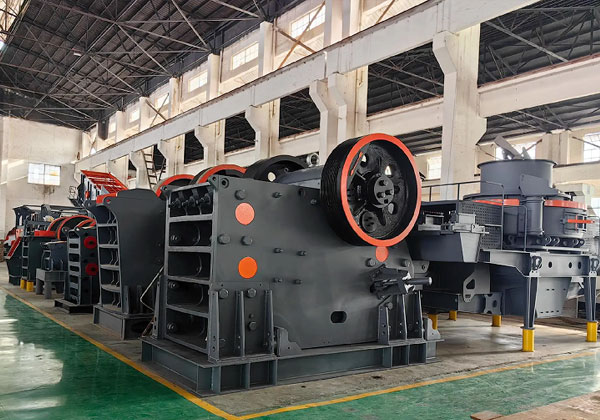Crushers for aggregate processing plants
Aggregate processing plants require reliable and efficient crushing equipment to produce high-quality construction materials such as sand, gravel, and crushed stone. Crushers play a fundamental role in breaking down large rocks into smaller, uniform-sized particles suitable for various applications. The most common crushers used in these plants include jaw crushers, cone crushers, impact crushers, and vertical shaft impactors (VSIs). Each type serves a specific purpose in the crushing process, ensuring optimal efficiency and output quality. Proper selection depends on factors like material hardness, required particle size, and production capacity.
Jaw crushers are typically the primary crushing stage in aggregate processing, handling large raw materials before secondary crushing. They use compressive force to break rocks and are ideal for hard, abrasive stones. Cone crushers, on the other hand, are used for secondary and tertiary crushing, offering fine adjustment of output size and high throughput for medium to hard materials. Impact crushers (horizontal shaft impactors) excel in shaping softer materials and producing a uniform end product, making them ideal for recycling and limestone processing. Vertical shaft impactors (VSIs) are specialized for shaping and sand production, producing well-graded fine aggregates with superior grain shape.

When designing a 500-ton-per-hour aggregate crushing plant, choosing the right crushers depends on the material properties and final product requirements. For primary crushing, a large-capacity jaw crusher (e.g., C6X series) may be used, while multiple hydraulic cone crushers (e.g., HPT or HST series) can handle intermediate and fine crushing. For sand production, a VSI6X series impact crusher ensures high-quality manufactured sand. Additional equipment such as vibrating screens, feeders, and conveyors help maintain smooth material flow and classification.
Modern crushers incorporate automation and intelligent control systems to improve efficiency, reduce downtime, and optimize energy consumption. Features like hydraulic adjustment, overload protection, and remote monitoring enhance operational reliability. Furthermore, producers should consider mobile crushing stations for flexibility in material transportation and site changes. Regular maintenance, including lubrication and wear part inspections, ensures long-term performance and cost-effectiveness.
Investing in the right crusher setup is critical for a profitable aggregate business. Manufacturers offer various configurations—fixed, portable, or modular—depending on processing needs. Consulting with professional suppliers helps determine the optimal crusher combination based on production goals, material characteristics, and budget constraints. High-performance crushing solutions not only maximize productivity but also ensure compliance with industry standards for durable, high-grade construction aggregates.
